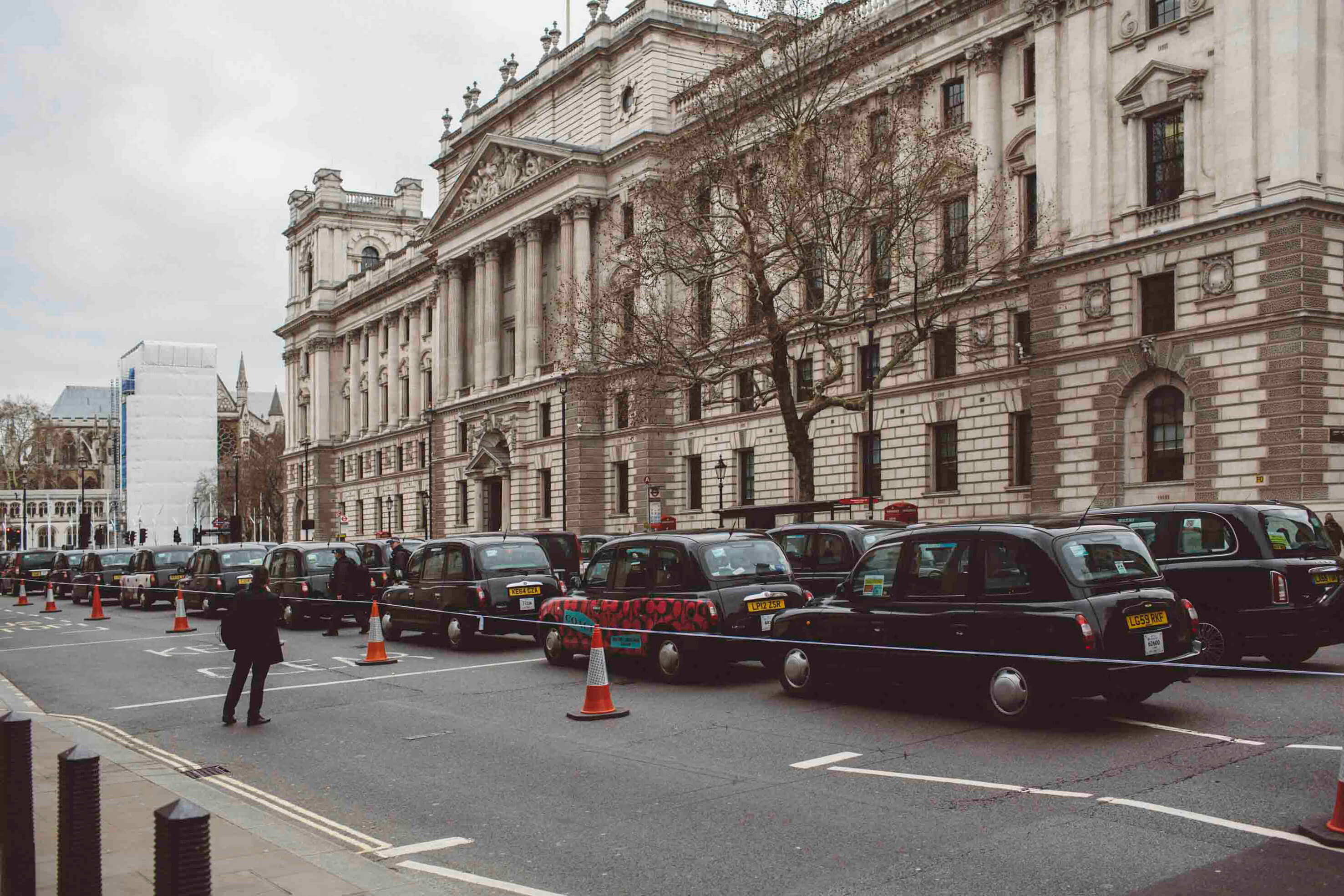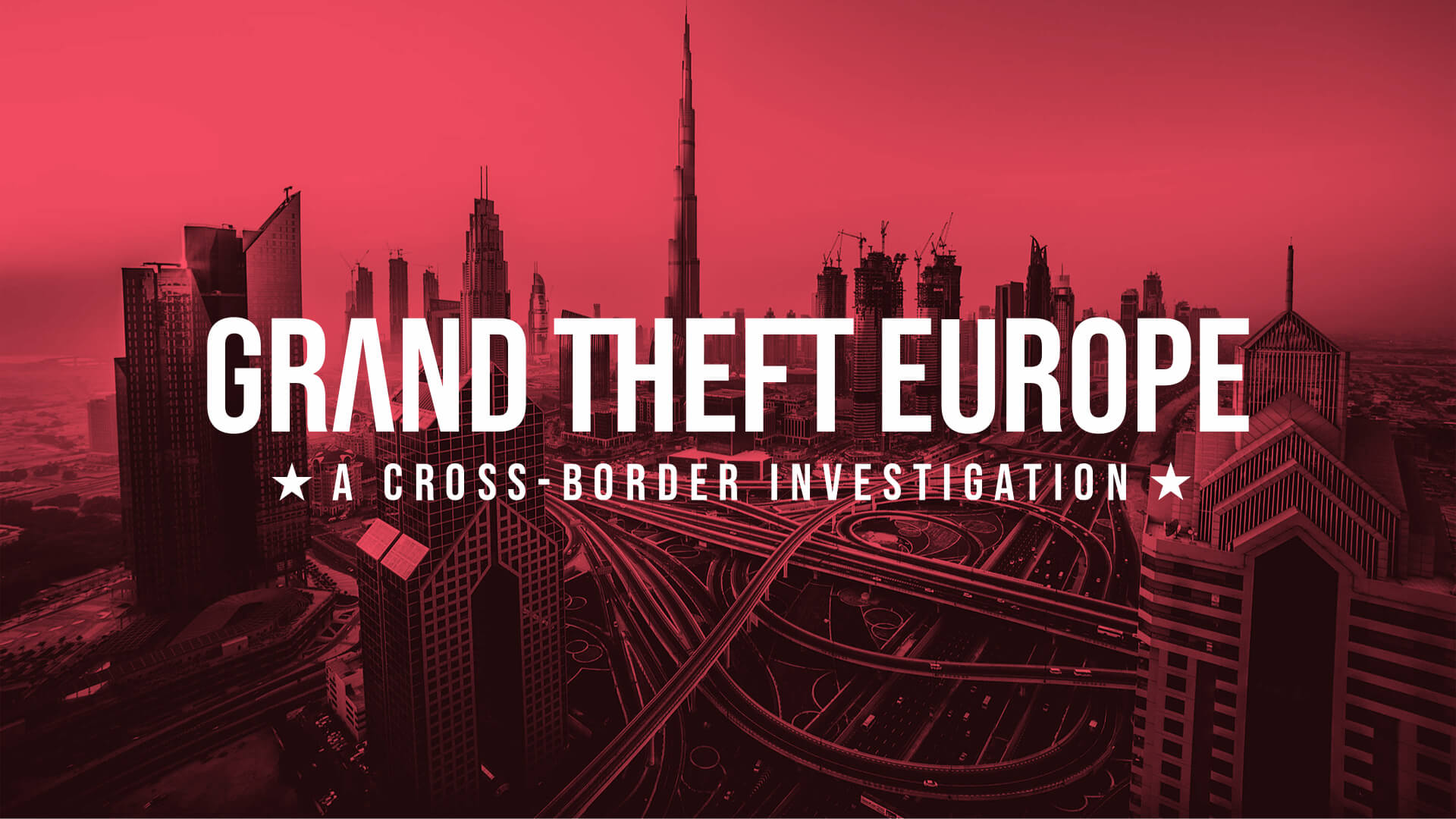How the UK is combating VAT fraud
When it comes to combating VAT carousel fraud, the UK has been the EU’s most successful member. Rod Stone, a former tax investigator, explains.

Rod Stone is one of the leading experts on VAT carousel fraud worldwide. For 40 years, he battled fraud at the HMRC, the UK’s tax administration, and developed a comprehensive counter strategy. In 2015, he formed his own crime advisory company.
CORRECTIV: The UK managed to reduce the annual loss to the treasury through VAT carousels from £3 billion (€3.4 billion) to roughly £500 million. How was that possible?
Stone: In 2005, a number of VAT fraud prosecutions by the tax authorities failed. As a result, I developed something called the ‘abusive right’ principle, which allowed the customs service to disallow import tax claims with respect to people involved in carousel fraud. I was given about three months to see if I could come up with a civil law remedy. We first started using it in January 2006, and by June we had disallowed £3.2 billion worth of import tax claims associated with carousel fraud.
CORRECTIV: So that was it – stop the tax claims, and the fraud just stops?
Stone: Not quite. In the UK, we used a holistic strategy to combat the fraud. We had a tool box. We looked at all the ways of freezing money, because that also made the environment hostile for them. We would look at insolvency. With insolvency you would identify the missing trader, that’s the importer, and raise a debt against him with the amount of tax that was due. The insolvency practitioner would then take over the running of the missing trader and seek to recover the missing money from everyone else in the ‘supply chain’. The supply chain, of course, was totally contrived and the only person who had any money was the person at the top, the exporter. So most of the insolvency practitioner’s investigations would end up at that point and they would then seek to recover the money. They could also recover the money from the directors personally and they could use worldwide freezing orders to target bank accounts abroad, and that was quite a successful approach. We could obviously also use criminal investigations and prosecutions.
CORRECTIV: How were they different in the UK?
Stone: The attraction of carousel fraud in most countries is that it doesn’t carry the same penalties as drug trafficking or bank robbery. Criminals are looking at no more than five years in prison, and by half of that they’ll be out. In the UK, we charge people or indict them with cheating the public revenue, and that carries a life prison sentence. In fact, the longest prison sentence that has been handed out has been 17 years, but it has been quite common for people to be sentenced to between 12 and 14 years for carousel fraud. And if they don’t pay back the stolen money, they’re brought back before the court, and their sentence is increased.
CORRECTIV: How would you and your colleagues chase the fraudsters?
Stone: If I suspected that a company was involved in carousel fraud I could send in an officer the same day. That’s part of our UK legislation and doesn’t exist in many EU states. We would get all the sales and purchase records, and from those records we could see who they’ve been buying from. If it’s the first intermediary company above the missing trader, by going to that trader we will identify the missing trader. And at that point, we can go and visit the missing trader. Of course, there won’t be anyone there. It’s just a brass plate on an office block. But by establishing that it’s not a legitimate trading company, we would cancel the VAT registration. We had officers out visiting traders on a daily basis.
But you knew that as soon as you took out one company and cancelled the VAT registration, within three or four days another company would be registered in its place and ready to go. So you had to continually monitor new company registrations, and who was behind them. We set up a system where every company we suspected of being involved in VAT carousel fraud was asked to clear the details of their suppliers and customers with a special unit in the tax administration. I would come to your office and say, ”I’m instructing you to phone up this office, and tell them every time you’re going to buy from someone new or sell to someone new.” In that way, the tax administration built up a profile of all the companies that were involved — or probably involved — in carousel fraud.
In addition, if a VAT refund claim was submitted,it was submitted on a monthly basis, and those refund claims would be selected for verification. A verification meant that every transaction on which VAT was being claimed would be tracked down to the missing trader, and nobody got any money until we were satisfied that it wasn’t part of a missing trader scheme.
I have to say there were a lot of legal challenges and we had to go to court frequently to hold our ground, and the courts again were very supportive, because they were aware of the problem, they were aware of the complexities of the fraud and that the tax administration was putting a lot of resources into stopping illegal or illegitimate business without impacting on honest traders.

CORRECTIV: Why don’t other EU member states act the same way?
Stone: The problem is that some of the legislation that countries are using is antiquated. It’s designed to deal with tax evaders, perhaps a man on the street corner who evades a small amount of tax, and the law has never been updated to deal with organized crime. Most of Europe hasn’t kept up with the times. You have to put it through parliament, you have to get people to agree, and many European countries seem to have great difficulty in getting this process through.
Likewise, the courts have to understand what they’re dealing with. In our early prosecutions and our early civil cases, a lot of the judges had difficulty in understanding the issue. We actually had to devise a strategy for delivering the trial to the court case so that everybody understood how the fraud worked. We tried to simplify it. There were large tax companies that were trying to sell VAT carousel fraud as a tax avoidance scheme. Which of course it wasn’t. The tax authorities contacted all the large accountancy firms and re-educated them into what they were dealing with.
CORRECTIV: How can we imagine the prosecution process?
Stone: From the time you first become suspicious of the fraud to the date of conviction, you’re looking at between three and five years. In the UK, we have an exemplary prosecution process or strategy. We would only prosecute the cases that had the biggest impact. Some of the major fraud chains were never prosecuted. But they lost their money because we used civil law strategies. There’s only a limited number of investigators. When you conduct a raid and arrest everybody, you need 250 or 500 officers. So there is a big resource implication.
The prosecution – criminal law — strategy meant that the tax administration had a say in which ones it wanted to prosecute. Some EU member states insist that every identified case of carousel fraud is forwarded to the prosecutor. For that reason, the cases that have been investigated and prosecuted in some EU member countries are more than 10 years old before they come to the court. In the UK we didn’t want stale cases. You probably won’t get much money out of it and it doesn’t send a message to the people currently involved in the fraud. You want to try and do it in real time. As much in real time as you can.
After the UK introduced its strategy, the fraudsters looked at other countries in the EU. The VAT carousel fraud became so minimal in comparison with what it had been that we were able to move on to other things. That was until 2009, when the fraudsters moved into the carbon credit market.
CORRECTIV: What happened?
Stone: The fraudsters started forming companies in France, and in the last quarter of 2007 they started trading large amounts of carbon credits through the BlueNext exchange in Paris. In January 2009, we became aware of a particular company in the UK selling tens of millions of euros of carbon credits to companies in France. We notified our French colleagues of the trader in France who received the carbon credits. We know from the audit that was carried out by the French audit office that the information wasn’t acted on. In fact, I don’t think the French visited the missing trader for about 5 months. This was largely because French legislation didn’t allow the tax administration to make a visit to a trader until after that trader’s tax return is due. It allowed the fraud to grow and continue in France.
Once we became aware of the carbon credit fraud in France, it was only a matter of time before it moved to the UK. These things are like the sea. They go across Europe in waves. So we were ready for when the fraud moved. On the day after the French introduced a measure that stopped the carousel, our officers went out and visited something like 30 or 40 traders and cancelled their VAT registration. That doesn’t mean we stopped it. The UK lost about £250 million between May and July 2009, but I suspect we recovered at least half of that through insolvency law and tax law.
CORRECTIV: From the UK, the carbon credit fraud then moved on to Germany where it was only stopped in July 2010. Was the German government not aware of the problem?
Stone: In 2009, every EU member state knew about the carbon fraud, certainly by July 2009. There were discussions on it in the Eurofisc and the Europol networks, and there were bilateral exchanges of information. It then became the responsibility of individual member states to take steps to stop it in their country.
CORRECTIV: Why do some member states have so much more difficulty in combatting the fraud than others?
Stone: I worked with tax administration throughout Europe, and everybody at the workface was determined to stop the fraud. But they were hampered by the processes and the legislation. Most of it seemed to be antiquated and disjointed, quite frankly. They were unable to act in real time, they lacked the resources in terms of the number of staff with the skills, and it appeared that most EU member states had great difficulty in introducing new legislation.
Take for example the ‘abuse of rights’ principle. It requires the tax administration to demonstrate that the businesses knew or should have known about the fraudulent schemes they were involved in. In the UK, this is an accepted principle. You argue that there is an abuse of the VAT system, and that’s not what the system’s set up for. The UK civil courts do not require that to be written into legislation. In France, there was a requirement for that same argument to be written into the tax code, and that takes time. [In in the UK] I didn’t have to wait for it to go through parliament. As soon as I thought of that as a method of stopping the fraud, we could implement it the next day.
CORRECTIV: Is there a way to stop this kind of fraud entirely?
Stone: The only thing that would probably stop it would be to have the same rate of tax throughout Europe on the same commodities. And that wouldn’t be accepted nationally by each individual member state. I suppose that if you end up with a federal Europe, where Brussels has the central European bank and then decides what money is going to be divided up to each individual country and organizes all the collection of the taxes, that would work. But many countries don’t want to be part of a federal Europe.

CORRECTIV: The EU Commission has proposed a new VAT tax scheme, the so-called definitive VAT system. Under the new rules, commodities traded between member states would be taxed in the country where they were sold, and the tax administrations would transfer the taxes between each other. Would that at least reduce the fraud?
Stone: Not really. Again, you go back to different tax rates on different goods [as the basis of] carousel fraud. I also know that it doesn’t stop at cross-border trade in the EU. Let’s assume the UK leaves the EU and we become a third country. We, and other countries within the EU, have suddenly introduced postponed accounting on imports from third countries. So what that basically means is that VAT is not collected at the border, it’s going to be deferred. That means that missing trader fraud can start up with countries outside the European Union. So you will get the fraud still operating, potentially, from EU member states to the UK, back into the EU member states. In an effort to ease the burden on business, they’ve actually created other opportunities for carousel fraud.
CORRECTIV: You are saying that the door for fraud will always remain open?
Stone: Yes. All you can do is deter people from becoming involved. If people are going to be locked up for 15, 16 years and lose all their revenue, they soon stop doing it. So, to my mind, strengthening the ability to collect the money at the earliest opportunity, taking away the assets that the fraudsters have purchased with the money they’ve stolen, and sending them to prison for a very long time, are the only deterrents that exists at the moment.
CORRECTIV: So every member state should create this hostile environment?
Stone: There is a responsibility on the European tax directorate to encourage member states to do so and change their legislation. But you’re coming up against cultural barriers. Countries will say, ”But we’ve done it this way for the last hundred years. This is the way our taxpayers expect it to be.” You have to re-educate the taxpayers and say ”the legislation that’s been introduced isn’t targeted at you, the taxpayer, it’s targeted at organized crime”. So, again, it’s all about re-education. You have to re-educate your taxpayers, so that they understand why things are changing, you have to re-educate the judiciary, you need politicians that will change the legislation.
One of the things the UK did was try to be more proactive to people who don’t put in their tax returns or their VAT returns. We’re now moving to making tax digital in the UK. People will have to start to use the tax digital. That in turn might highlight missing traders more quickly. But you only need to be a missing trader for a day to make £10 million.

